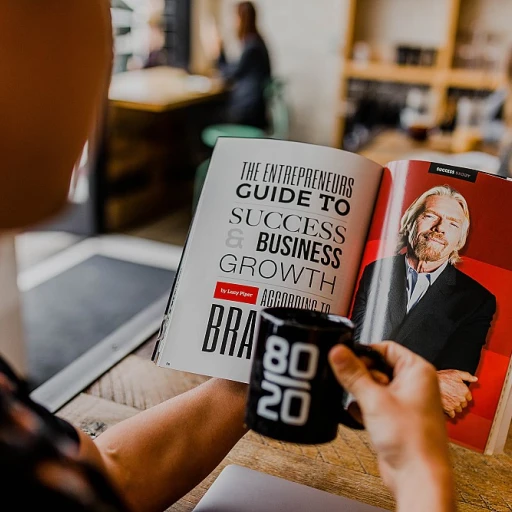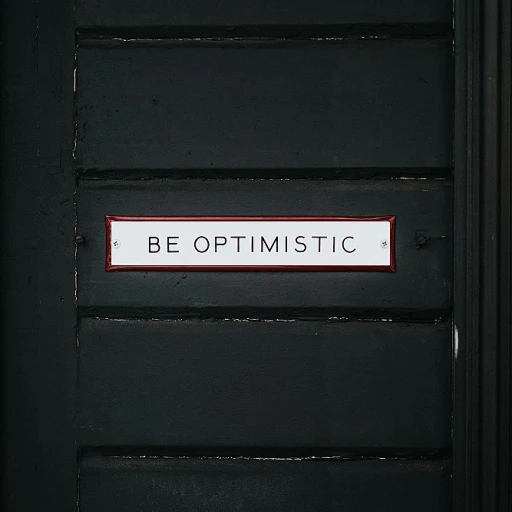
Understanding Talent Assessment Tools
Exploring the Role of Talent Assessment Tools
In the ever-evolving landscape of recruitment, talent assessment tools have emerged as pivotal instruments for organizations aiming to enhance their hiring processes. These tools are designed to evaluate candidates' skills, potential, and personality traits, providing recruiters with data-driven insights that inform hiring decisions. By leveraging these assessments, companies can better align their talent acquisition strategies with organizational goals, ensuring they fill positions with the best candidates.
Talent assessments come in various forms, including cognitive tests, personality assessments, and skills evaluations. Each type serves a unique purpose, from gauging problem-solving abilities to understanding team dynamics and leadership potential. The use of such tools not only aids in identifying high-potential candidates but also supports succession planning and workforce development.
As organizations strive to make informed talent decisions, the integration of assessment tools into the recruitment process becomes crucial. These tools provide a structured approach to evaluating candidates, reducing bias and enhancing the overall candidate experience. For more insights on how automated hiring tools can enhance candidate experience, you can explore this resource.
While the benefits are clear, choosing the right assessment tool requires careful consideration of the features and capabilities that align with an organization's needs. As we delve deeper into the impact on candidate experience and the integration of these tools into recruitment processes, it becomes evident that a strategic approach is essential for maximizing their effectiveness.
Impact on Candidate Experience
Transforming Candidate Experience Through Effective Assessments
The implementation of talent assessments can be a pivotal factor in shaping a positive candidate experience. As organizations increasingly rely on data-driven insights from assessment tools, the experience of potential hires during the recruitment phase becomes crucial. Candidates often perceive these tools as milestones in their professional journey, allowing them a fair chance to demonstrate their skills, potential, and personality traits. An assessment tool built with the best and most relevant job features provides a transparent and unbiased platform for evaluating candidates. However, it is vital to note that ineffective use of these tools can lead to a frustrating experience. Poorly structured assessments could stretch over long periods, leading to candidate burnout, or present tests that appear irrelevant to the job role, causing confusion and dissatisfaction. An effective hiring strategy takes into account the balance between comprehensiveness and conciseness in assessments. This careful calibration ensures that the experience is not only informative for the recruiters but also engaging and fair for the candidates. Here, high-level insights from organizations like Korn Ferry could come in handy. Moreover, when assessments evaluate relevant skills and personality traits, they provide candidates with valuable feedback and developmental opportunities, enhancing their performance and engagement. This approach aids the organization in identifying high potential candidates who are ideal for succession planning and leadership roles, improving overall team dynamics. To effectively elevate candidate experience, businesses should integrate user-friendly features into their assessment tools, thus supporting a smooth assessment process. Ensuring candidates understand the purpose behind each test and how it relates to real-world job scenarios can significantly improve their engagement and satisfaction. Explore further on the trends in hiring remote workers for more insights into creating impactful candidate experiences.Choosing the Right Tools
Selecting the Most Effective Assessment Tools
Choosing the right talent assessment tools can significantly influence the success of the hiring process, directly impacting the candidate experience and the ultimate performance of an organization’s workforce. With a plethora of options available, selecting the tools that best align with your organization's goals and values requires careful consideration. A thorough evaluation must account for the features and capabilities of each tool. Consider whether the assessment tool effectively measures the skills and traits relevant to your job requirements, such as problem-solving abilities, leadership qualities, and personality traits. Additionally, ensure that the tools provide comprehensive insights into candidates’ potential and development needs. Data-driven tools are crucial for making informed hiring decisions. They reduce bias and improve decision-making accuracy by evaluating candidates based on objective metrics. This not only enhances talent acquisition strategies but also improves assessments evaluate candidates, aligning with overall talent strategy. Furthermore, key factors like user experience and integration capability with existing systems should be prioritized. Tools that are intuitive for recruiters and provide a seamless experience for candidates improve engagement throughout the recruitment process. Moreover, considering tools endorsed by reputable organizations, such as Korn Ferry, can enhance the credibility of your assessments. Such endorsements often guarantee that the tools have been vetted for effectiveness and reliability, aligning with the best industry practices in talent acquisition. To prevent potential setbacks, it is crucial to align talent assessments with your organization's leadership and succession planning goals. Recognizing the high potential candidates who can fill critical roles and advance based hiring priorities can sustain your workforce's growth efficiently. Ultimately, aligning the choice of assessment tools with clear data-driven insights and the organization's objectives can optimize the handling of applicant information and improve the overall recruitment process.Integrating Tools into the Recruitment Process
Seamless Integration for Improved Recruitment Outcomes
Incorporating talent assessment tools into your recruitment process requires a thoughtful approach to ensure that they enhance, rather than hinder, the hiring experience. A well-executed integration can yield better insights into a candidate's skills and potential, improving both talent decisions and overall workforce quality. First, it's important to align talent assessments with the organization's overarching talent strategy. By doing so, recruiters and hiring managers can evaluate candidates based on criteria that are most relevant to the job performance and leadership potential needed within their teams. Key considerations for integration include:- Compatibility: Ensure assessment tools are compatible with existing HR systems to streamline data collection and analysis. This can facilitate data-driven hiring decisions that are transparent and consistent.
- Clarity and Consistency: Implement assessments that are straightforward and uniform across all candidates. This helps maintain fairness and transparency, crucial for a positive candidate experience.
- Training and Support: Provide recruiters and hiring teams with adequate training on how to utilize assessment features effectively, enabling them to make informed decisions based on comprehensive candidate insights.
- Feedback Mechanisms: Encourage recruiters to gather feedback from candidates about their experience with the assessments, which can inform improvements and foster trust.
- Continuous Evaluation: Regularly assess the efficacy of the tools, ensuring they contribute to the development of high-potential employees and support succession planning.
Overcoming Challenges
Addressing Roadblocks in Using Talent Assessment Tools
Successfully adopting talent assessment tools in recruitment is not without its hurdles. Many organizations face challenges that require strategic approaches to ensure seamless integration. One common roadblock is the resistance to change among recruiters and hiring teams. Shifts in talent acquisition strategies need careful management and an emphasis on the benefits of data-driven decision making. Providing clear insights into how assessments evaluate skills and personality traits can alleviate doubts, highlighting their contributions to identifying high potential candidates. Technical complexities can also hinder implementation. Ensuring the chosen assessment tool seamlessly integrates with existing systems is crucial. This can mean working with IT departments to ensure compatibility and addressing data privacy concerns to protect both candidates and the organization's workforce data. Moreover, the perception of assessments as mere "tests" to pass or fail can impact candidate experience negatively. Transparently communicating the purpose and value of talent assessments in identifying development opportunities and improving overall job performance aids in dispelling such misconceptions. It is essential to provide recruiters with adequate training on talent assessments. They should be equipped with the knowledge to interpret results effectively, drawing actionable insights that support informed hiring decisions and leadership development. Lastly, adapting these tools for succession planning and team dynamics requires ongoing evaluation and updates. High-performing organizations view this as part of an evolving talent strategy, ensuring tools remain relevant and aligned with organizational goals. This strategic alignment fosters a more cohesive and effective talent acquisition process, ultimately leading to the best hiring outcomes.Future Trends in Talent Assessment
Embracing Technological Advancements
The future of talent assessment is undeniably intertwined with technological advancements. As organizations strive to enhance their hiring processes, the integration of artificial intelligence (AI) and machine learning in assessment tools is becoming more prevalent. These technologies offer data-driven insights that help recruiters make informed hiring decisions, ensuring that the best candidates are selected based on their skills and potential.
Focus on Soft Skills and Personality Traits
While technical skills remain crucial, there is a growing emphasis on evaluating candidates' soft skills and personality traits. Tools that assess problem-solving abilities, leadership potential, and team dynamics are gaining traction. These assessments evaluate not just the immediate job performance but also the long-term fit within the organization, aiding in succession planning and talent strategy development.
Personalized Candidate Experience
Future trends in talent assessment also point towards a more personalized candidate experience. Assessment tools are being designed to be more engaging and interactive, providing candidates with a realistic preview of the job. This approach not only helps in evaluating candidates more effectively but also enhances their overall experience, making them more likely to accept job offers and fill positions.
Data-Driven Decision Making
As organizations continue to collect vast amounts of data, the ability to leverage this information for talent decisions is becoming a key competitive advantage. Assessment tools that provide comprehensive insights into candidates' capabilities and potential are essential for making strategic hiring decisions. This data-driven approach ensures that organizations can build a high-performing workforce tailored to their specific needs.
Continuous Development and Feedback
Finally, the future of talent assessments is moving towards continuous development and feedback. Organizations are increasingly using assessments not just for hiring but also for ongoing employee development. By identifying areas for improvement and providing targeted training, companies can foster a culture of continuous learning and growth, ultimately enhancing workforce performance.












